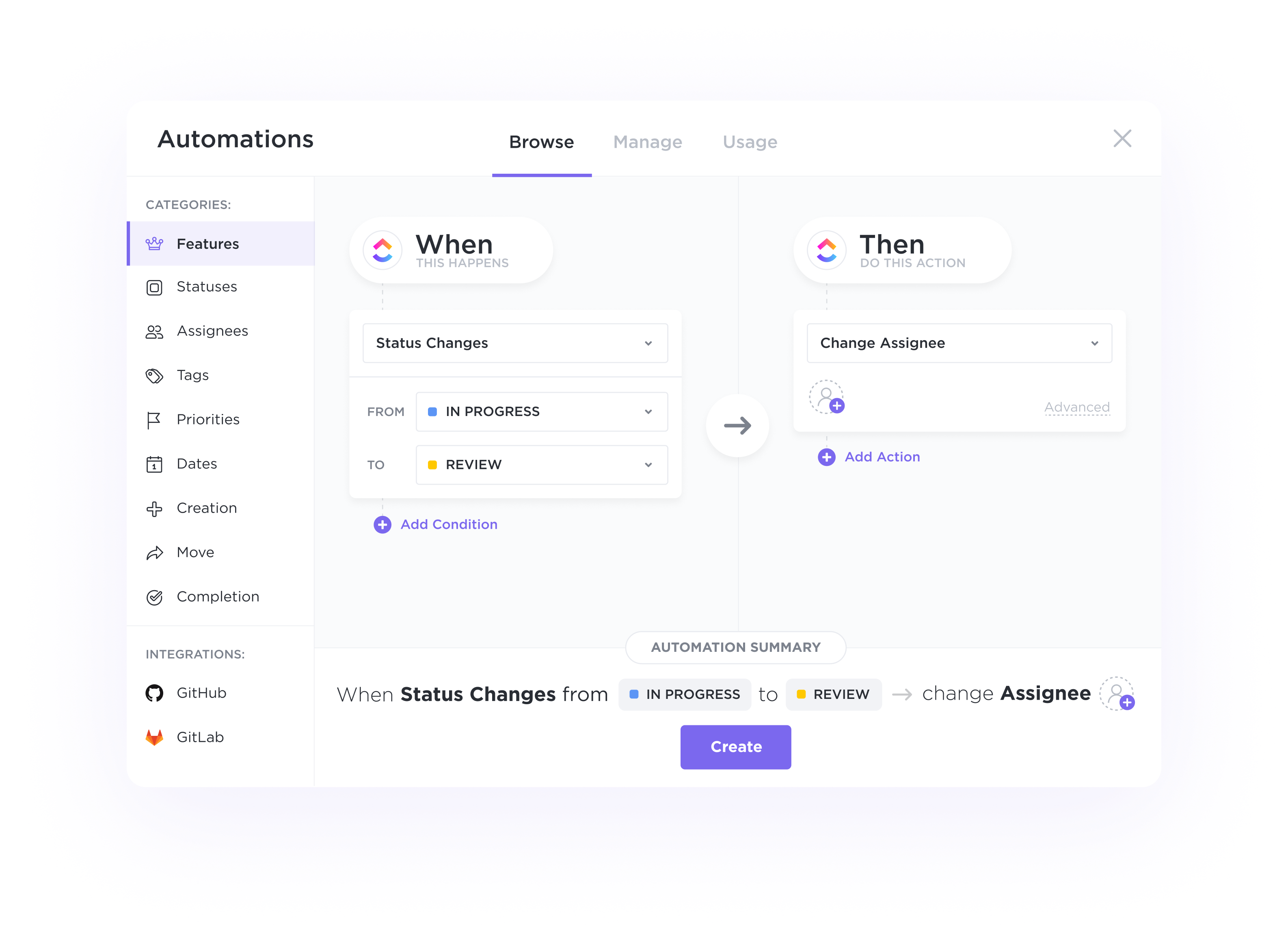Email Management
Centralize customer outreach.
Eliminate silos and fast-track communication by integrating your emails with ClickUp. Collaborate on deals, send project updates to clients, and onboard customers with a single email hub.

Gantt Charts
Supercharge your Commercial Real Estate business with ClickUp's customizable CRM system. Streamline your client interactions, manage property listings, and close deals faster than ever before. Take your business to new heights with ClickUp's powerful CRM features designed specifically for the Commercial Real Estate industry.
Free forever. No credit card.
Email Management
Eliminate silos and fast-track communication by integrating your emails with ClickUp. Collaborate on deals, send project updates to clients, and onboard customers with a single email hub.

Automations
Automatically assign tasks for each stage of your pipeline, trigger status updates based on activity, and switch priorities to alert your team on where to focus next.

A CRM for commercial real estate can centralize all property listings, deal information, and client details in one place. This helps agents and brokers keep track of available properties, current deals, and client preferences, making it easier to match properties with potential buyers or tenants.
CRMs can store detailed information about client interactions, preferences, and requirements. This allows agents to provide personalized service, track communication history, and tailor property recommendations based on client preferences, ultimately improving client satisfaction and retention.
CRM software can automate follow-up emails, reminders for property viewings, and other important tasks. This automation ensures that no lead or client falls through the cracks, and helps agents stay organized and responsive in a fast-paced industry like commercial real estate.
CRMs offer reporting and analytics tools that provide insights into sales performance, deal progress, and return on investment. Agents can track key metrics such as conversion rates, deal pipeline, and marketing ROI to make informed decisions and optimize their strategies for better results.
In commercial real estate, teamwork is often crucial for closing deals. A CRM facilitates collaboration by allowing team members to share information, assign tasks, and track progress on deals collectively. This fosters better communication, coordination, and efficiency within the team.
Key features of CRM software that can benefit commercial real estate professionals include managing property listings, tracking client interactions, automating follow-ups, analyzing market trends, and facilitating collaboration among team members.
CRM software can help in managing and tracking leads and deals in the commercial real estate industry by centralizing all lead and deal information, automating follow-up processes, providing insights into lead interactions, tracking deal progress, and facilitating collaboration among team members for more efficient deal management.
Yes, many CRM software options offer integrations with tools commonly used in the commercial real estate industry, such as property management software and email marketing platforms, to streamline processes and improve efficiency.